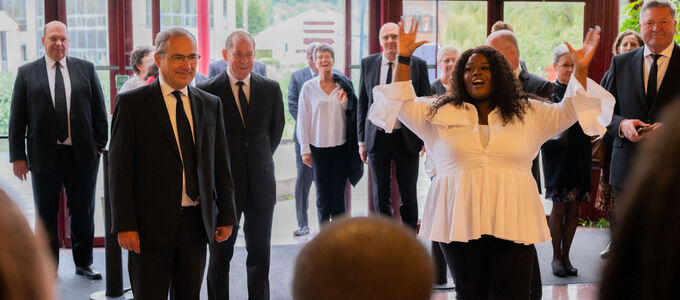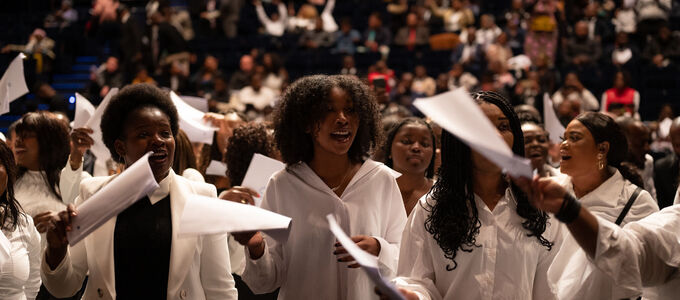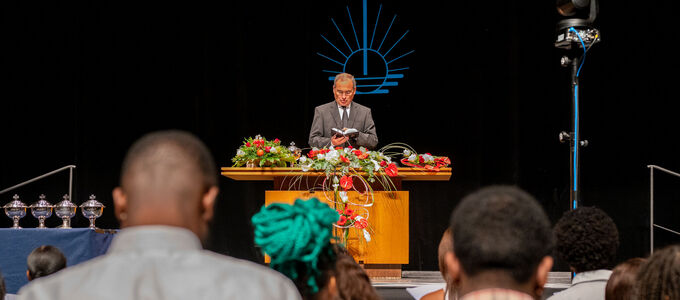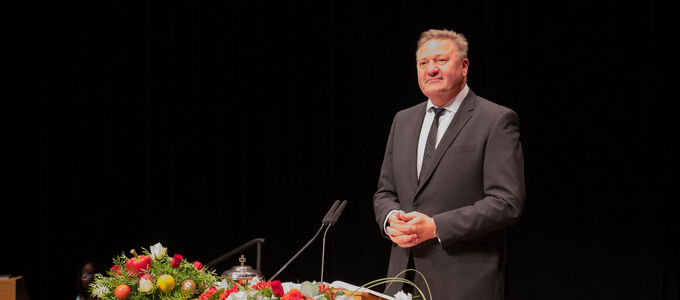
Acknowledging, remembering, and appreciating the value: this is how gratitude works. And that is the answer to a question that is thousands of years old: “What shall I render to the Lord for all His benefits toward me?” (Psalm 116: 12)
“This is the basis of life in society: each one gives to the other, and that balances things out,” said Chief Apostle Schneider during the divine service on 2 October 2022 in Évreux in France. “The psalmist, however, realised that this does not work with God. How can God and I ever be quits?”
“First, because God meets my needs, but He has no needs Himself. He is perfect. So I cannot do God any favours.” And secondly: “What do you want to give to earn eternal life? What can you give in return for the sacrifice of Jesus Christ? We don’t play in the same league.”
“All I can do is show Him my gratitude.” And how? The Chief Apostle listed a few points:
- be aware of the value of the gift
- remember the one who gave the gift
- feel committed to the giver
- show your affection to the giver.
“The first step to gratitude is to appreciate the value of what God gives us. And here I could think of a lot of things.” The Chief Apostle mentioned, for example, the climate, the rain, the sun, mineral resources, and peace. “This is for society,” he said. But there is also health, our livelihood, and our family at the personal level, as well as divine service, Holy Communion, and faith in Christ on the spiritual level.
“All it takes is a small or a big crisis, and then you realise that, in the end, things are anything but sure.” In this context, the Chief Apostle addressed climate change, scarcity of raw materials, wars, illness, unemployment, and the Covid-related cancelling of in-person services. “Then one recognises the importance of what all God gives to human beings.”
“Then the second step: remembering that it was He who gave it to us,,” the Chief Apostle continued. “Here we only have to look at the Bible to realise that human beings fall into the same trap again and again.” Namely, forgetting all the good God has done as soon as we lack something, when our expectations are not met, or when something unpleasant happens to us.
“This is one of the reasons why we come together every week: to celebrate and remember the victory and sacrifice of Jesus Christ. This is one of the deeper meanings of Holy Communion, to tell the world and especially ourselves: ‘I won’t forget!’”
Feeling indebted to the giver in gratitude manifests itself in several ways:
- whoever appreciates a gift, treats it with care. This concerns creation as well as our health and, above all, our spiritual life.
- appreciation also means keeping promises: “You promised God something at your baptism, at your confirmation, at your wedding, at your ordination.”
- “We also bring our offering to Him simply because we know that we owe Him everything.”
“And the last point is to show affection to the giver.” For: “When we embrace the one who has given us something, we want to show him our affection.” But: “How does that work with God?”
“This is the ultimate in gratitude: we love the giver. Our relationship with Him is much more important to us than what He gives us. We stay with Him even if He does not answer all our prayers, and we trust Him.” And then God has another recipe: “The best way to love Me is to love your neighbour and share what I have given you with others.”




























